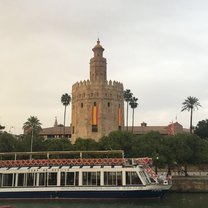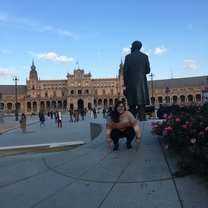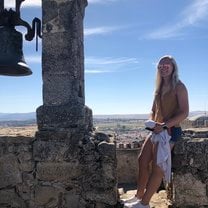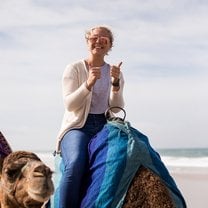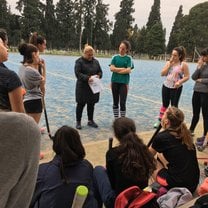
Spanish Studies Abroad
Why choose Spanish Studies Abroad?
Spanish Studies Abroad has created innovative study abroad experiences since 1969, focusing primarily on academics, Spanish language, and student integration into a culture. Since then, new programs have been created, and old ones have evolved. Now offering multiple study abroad programs in Spain, Argentina, Cuba, and Puerto Rico studying with SSA has never been more exciting.
The mission of Spanish Studies Abroad is to promote students' in-depth understanding of Spanish-speaking countries, through specifically designed academically-rigorous university-level programs. All students must be willing to cross cultural boundaries, to live as members of another culture, and to thus learn about others as they learn about themselves.
Website
www.spanishstudies.orgFounded
1969Scholarships

Spanish Studies Abroad Financial Aid
Spanish Studies Abroad has awarded over $230,000 in scholarships since 2001 via its two scholarships, the Merit-Based Scholarship and the Diversity Scholarship, for academic programs in Spain, Puerto Rico, Cuba, and Argentina. The Merit-Based Scholarship to Spain is awarded to one student who shares “a personal life story that demonstrates [their] dedication to learning Spanish and how [they] have gone above and beyond in [their] acquisition of the language,” in a 400-to-500-word essay.
Diversity & Inclusion
BIPOC Support
You may experience being in the minority or majority for the first time, encounter different perspectives of what it means to be from the U.S., or have stereotypes (both positive and negative) placed upon you.
While everyone’s experience is different, preparing yourself ahead of time and knowing which resources are available can be helpful.
LGBTQIA+ Support
Every country perceives sexuality and gender expression differently and you should think about how your study abroad destination may react to your identity and how freely you’ll be able to express yourself when you’re abroad. While you should not feel pressured to closet yourself while you’re away, it’s important to have a grasp on how your expression can be perceived in a different cultural context.
In order to help prepare you to have the best time while abroad, here are some resources we have gathered to get you started.
Accessibility Support
Please note that the location that you are applying to may have specific accessibility challenges such as uneven terrain, cobblestones, stairs, lack of specialized equipment, and differing attitudes and laws regarding accessibility. You also may find that medications typically prescribed in the U.S. may not be available or legal in your host country. It is important to allow extra time to plan the appropriate arrangements for your time abroad.
However, our team at Spanish Studies Abroad is here to help support you to the best of our ability in arranging necessary accommodations for your study abroad experience. We encourage you to tell your Admissions Advisor if you need any special arrangements.
Reviews
Programs
Alumni Interviews
These are in-depth Q&A sessions with verified alumni.
Staff Interviews
These are in-depth Q&A sessions with program leaders.
Professional Associations

















